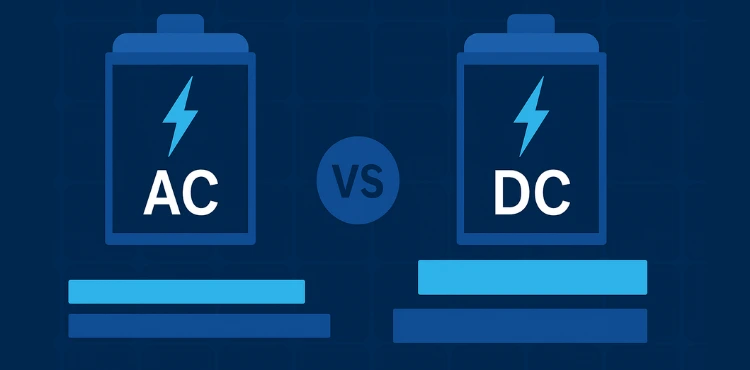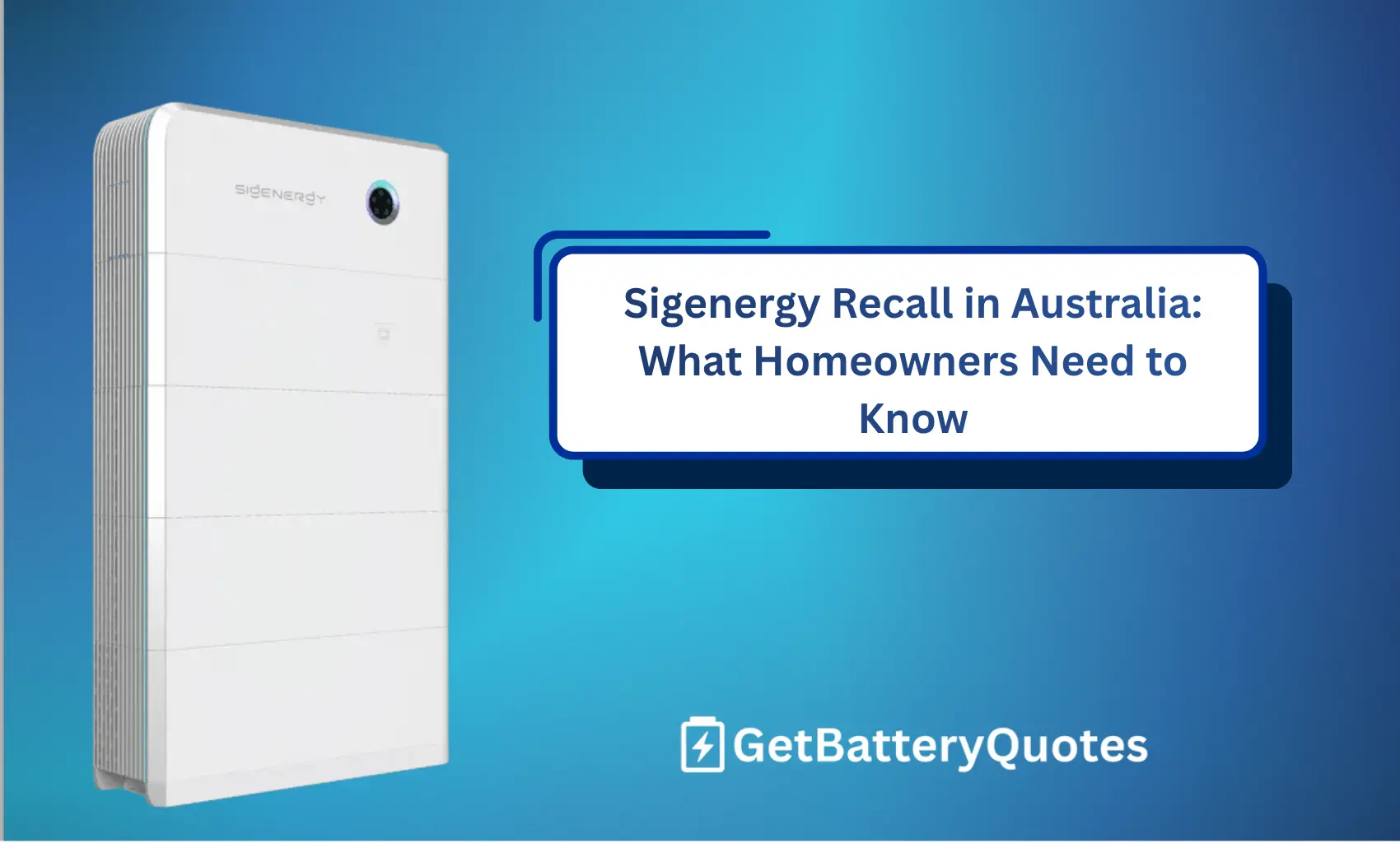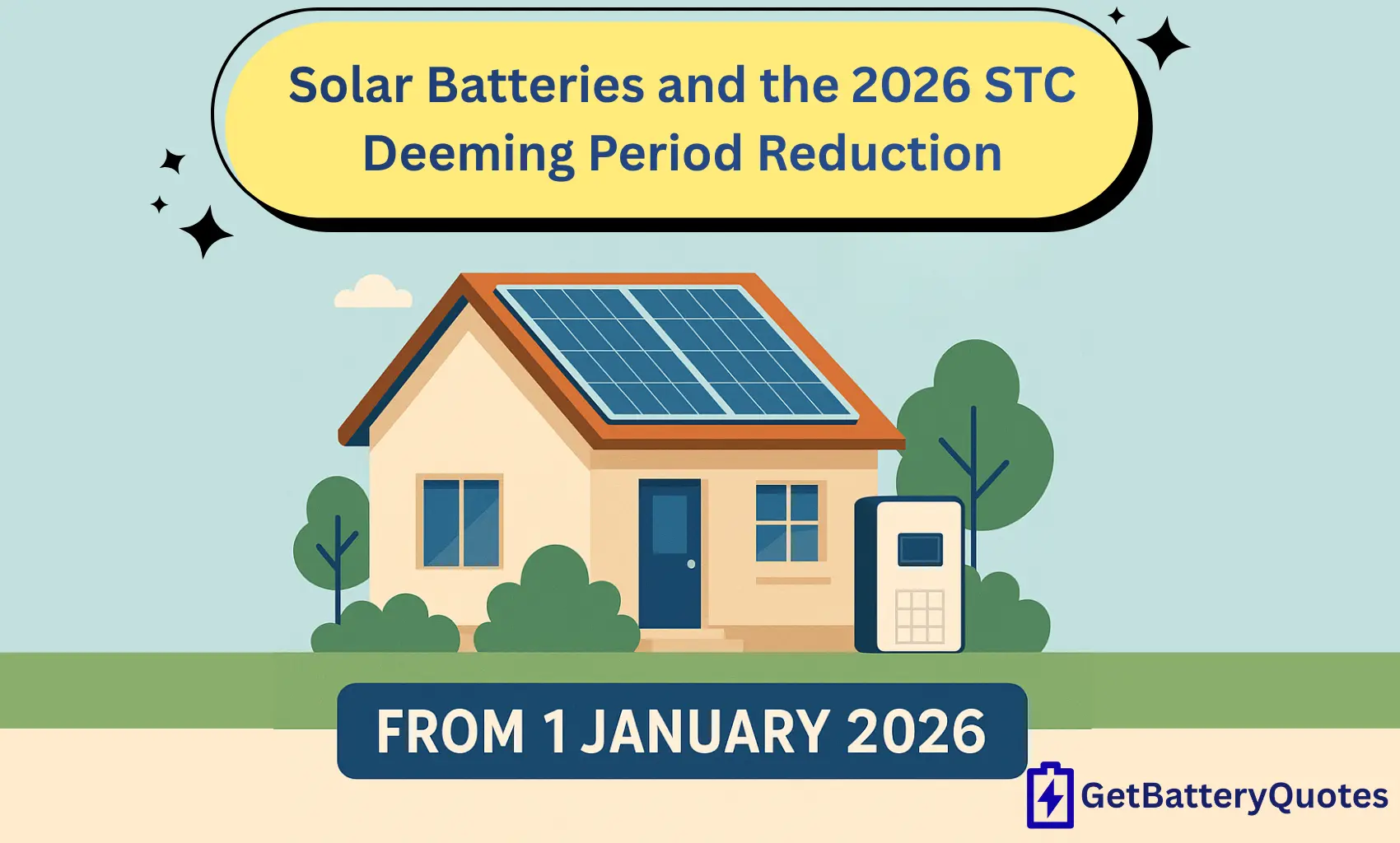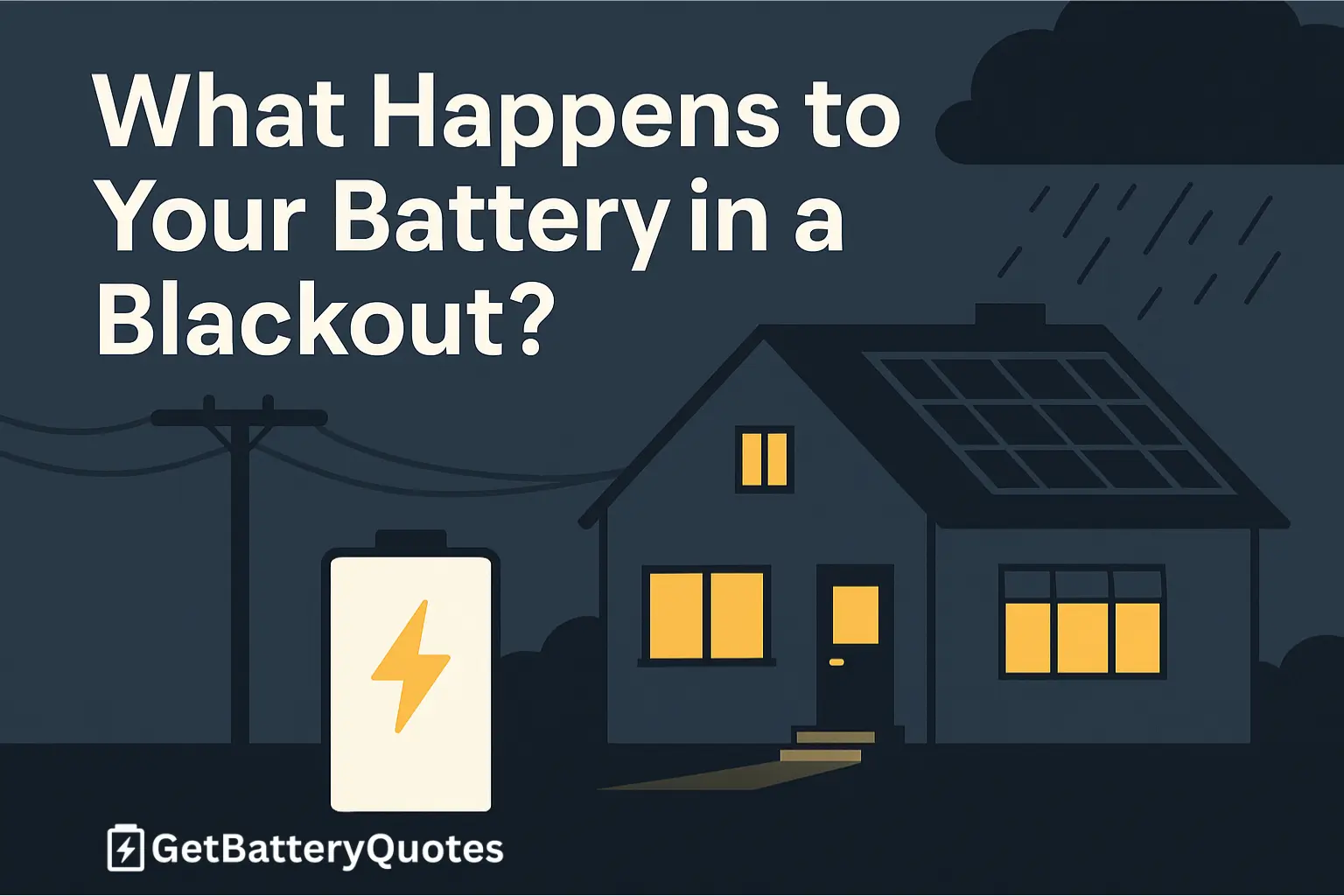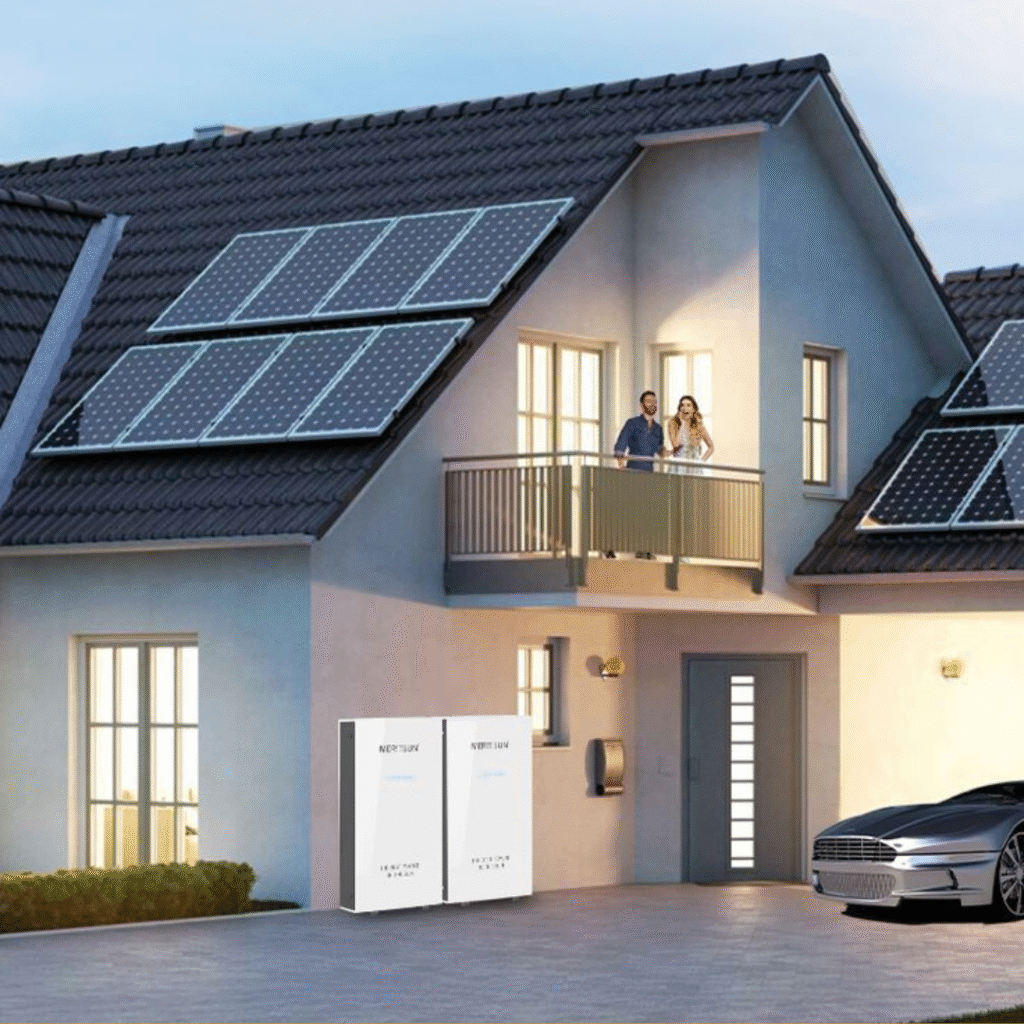AC vs DC-Coupled Batteries: What’s the Difference — and Which One Is Better for Your Home?
Introduction: Why AC vs DC Battery Setup Actually Matters
- How efficiently it stores and delivers power
- What kind of inverter you need
- Whether you can use your existing solar system
- How easy it is to upgrade or expand in the future
- Whether it works with Virtual Power Plants (VPPs), backup power, or time-of-use charging
- Adding a battery to an existing solar system
- Installing solar and battery together
- Joining a VPP or going off-grid-ready
What Does “Coupling” Mean in a Battery System?
DC-coupled systems:
The battery shares the same inverter as your solar panels. The energy stays in DC until it’s sent to your home.
AC-coupled systems:
The battery has its own inverter, separate from the one used for solar. Power is converted from DC to AC, and back again, depending on the flow.
What Is a DC-Coupled Battery?
How It Works
- Solar panels generate DC electricity
- That DC power goes into a hybrid inverter, which manages both the solar panels and the battery
- The battery stores excess DC energy directly
- When energy is needed, the inverter converts DC to AC for your home
Pros of DC-Coupled Batteries
- Higher efficiency (fewer energy losses during charging/discharging)
- Lower equipment cost when included in a new solar + battery installation
- Cleaner system design with fewer inverters and less wiring
- Viable for some retrofits if you're willing to replace your existing inverter with a hybrid one
Cons of DC-Coupled Batteries
- Requires a hybrid inverter which may mean replacing your current one
- Not plug-and-play for most existing solar systems
- Less flexible if you're adding a battery much later or planning staged upgrades
- Compatibility varies not all batteries or systems support this layout
What Is an AC-Coupled Battery?
How It Works
- Solar panels generate DC electricity, which your existing solar inverter converts into AC for your home
- Any excess energy is exported to the grid (or used to charge the battery — but not directly)
- The battery inverter converts AC from the home back into DC to store it
- When needed, the battery discharges power through its inverter to supply AC back into the home
Pros of AC-Coupled Batteries
- Perfect for retrofits — easy to add onto an existing solar system
- No need to replace your current inverter
- Greater compatibility with a wide range of systems and battery brands
- Ideal for staged upgrades (e.g. if you added solar years ago and want a battery now)
- Often easier to integrate with VPPs, off-peak charging, and time-of-use strategies
Cons of AC-Coupled Batteries
- Lower efficiency due to multiple power conversions
- Slightly higher equipment cost (two inverters instead of one)
- More wiring and components = more complexity for the installer
- May need additional hardware if you want blackout protection or full energy monitoring
Real-World Comparison: Which System Suits What Scenario?
You already have solar installed
Best fit: AC-coupled
- You don’t need to replace your existing inverter
- Installation is straightforward and minimally disruptive
- Compatible with most homes and easier to quote
- Replace your old inverter soon
- Want a more integrated, efficient system
- Are okay with slightly more upfront work
You’re building a new home or starting fresh
Best fit: DC-coupled
- More efficient and cost-effective when installed from the beginning
- Cleaner system layout (1 inverter, fewer components)
- Great for new builds, full system redesigns, or future off-grid prep
You’re planning staged upgrades over time
Best fit: AC-coupled
- Lets you add storage now without reworking your solar system
- More flexibility if you plan to upgrade solar panels, switch brands, or expand later
You want backup power during blackouts
- Your inverter is battery-backup capable (not all are)
- The system supports islanding (running independently from the grid)
- You ask your installer whether the setup protects your whole home or just essential circuits
How to Know What You’re Being Quoted For
Ask These Questions Before You Accept a Quote:
Is this battery system AC-coupled or DC-coupled?
(If they can’t answer clearly, that’s a red flag.)
Will this work with my current solar setup or will something need to be replaced?
A good installer will walk you through inverter compatibility and the pros/cons of both options.
Is this system designed to charge effectively in winter or just summer?
Battery systems need to match seasonal solar generation and household usage.
What happens if I want to expand later add another battery, more solar, or join a VPP?
The coupling method can affect how flexible your system is down the line.
How to Spot It in a Quote or Datasheet
- If the quote mentions a hybrid inverter, it's likely a DC-coupled setup
- If the battery is listed with its own inverter, or described as a retrofit, it’s likely AC-coupled
- Look out for setups like the Enphase Battery, which is always AC-coupled, and systems like the Sungrow SBR battery, which is usually DC-coupled when paired with a hybrid inverter
Final Verdict: So, Which One Is Better?
💡 Have an existing solar system?
AC-coupled is usually simpler and more cost-effective
🏗️ Starting fresh with solar + battery?
DC-coupled can be more efficient and streamlined
🔁 Replacing an old inverter?
You might have the option to go DC-coupled by installing a hybrid inverter
♻️ Planning future upgrades?
AC-coupled tends to offer more flexibility
⚡ Want backup power?
Both systems can do it but only with the right inverter and setup
Ready to compare your options?
- Check your eligibility for 2025 battery rebates
- Get quotes from certified, experienced installers
- Understand exactly what you're being quoted and why it matters

